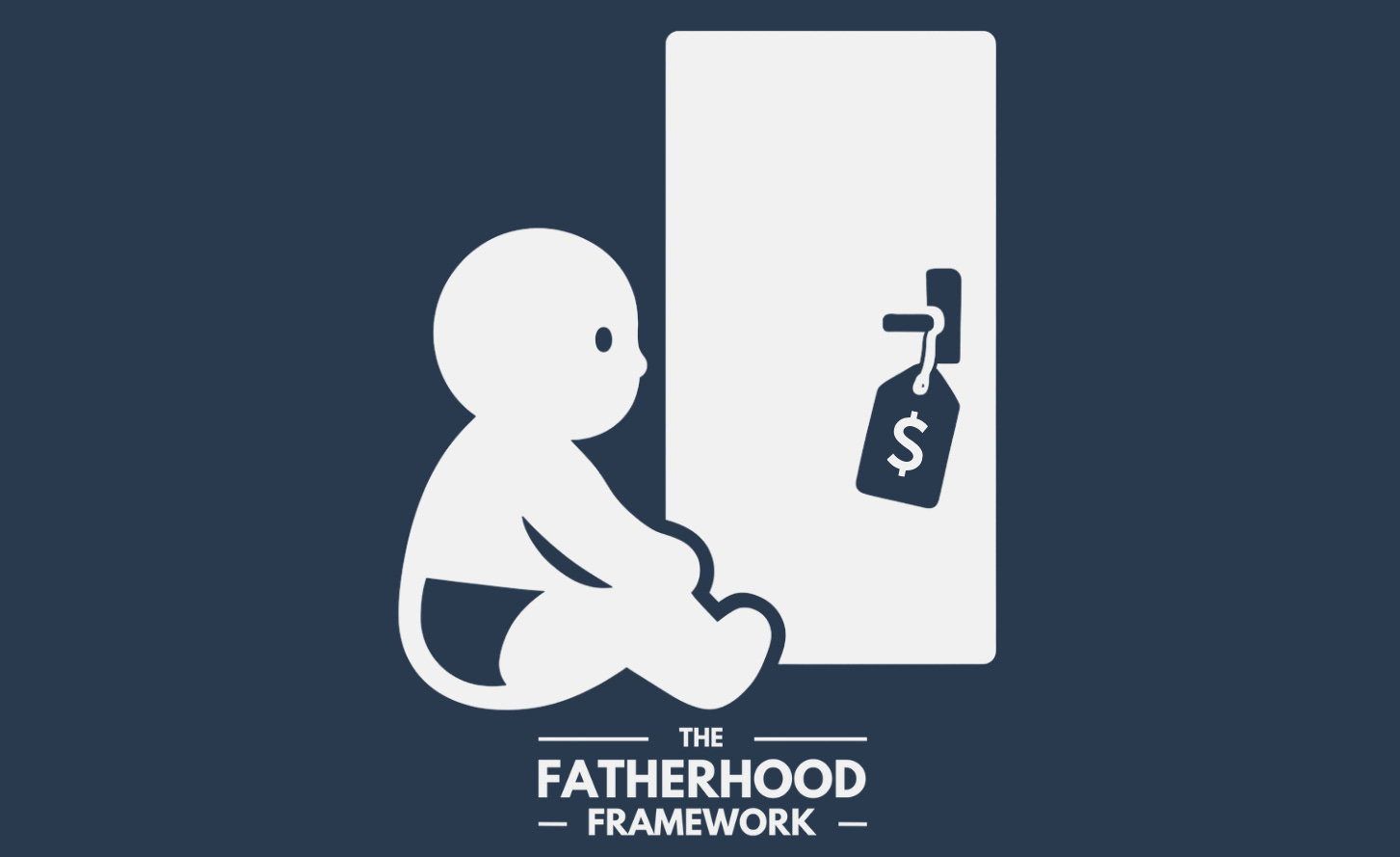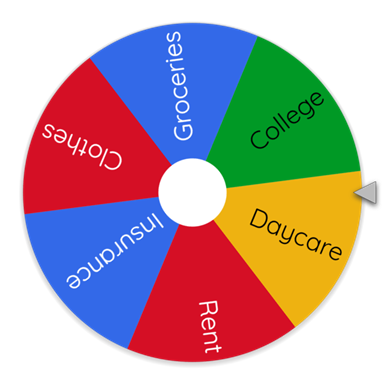Can We Afford to Have Another Kid?
The financial reality behind family planning in an unforgiving economy.
Working in politics and policy can be disorienting. You’re often expected to take clear positions on issues that are anything but. The debates are binary; real life isn’t. If you're lucky, you have a partner - like my wonderful wife - who will patiently nod along while you talk that tension out.
If your partner is lucky, you also have a Substack. Dear reader, guess who has a Substack.
This is the first of two posts. Together, they explore the tension between what society asks of families and what families actually need to thrive. We talk a lot about growth - economic, cultural, demographic - but that growth often comes at a cost that families are left to shoulder alone. These two pieces wrestle with that gap: what’s expected, what’s realistic, and what it means to say yes anyway.
Stay tuned for the second post this Thursday.
Can We Afford Another Kid?
My wife and I have been talking about growing our family. And the truth is - we could. It might make things a bit tight for a while, sure, but we could make it work.
And we want to. Because we believe what many of you do: kids are a joy, a gift, and a blessing. But even from a place of relative stability, it’s clear: the cost of raising children today is staggering. And for many families, that cost makes "just one more" feel impossible.
This post isn’t a complaint. It’s a reality check. Not because I don’t want more kids - but because I do.
Hope Doesn’t Pay the Bills
Encouragement often comes in the form of familiar phrases: "You’ll make it work." "Kids are always worth it." "There’s never a perfect time." and my personal favorite: ‘you won’t get more than you can handle’ - spoken exclusively by people who haven’t opened a daycare invoice in years.
Let me be clear: I generally agree with all of these. My guess is most parents do. But those words land differently when your financial future is on the line. When adding another child means risking your career, downsizing your life, or walking a financial tightrope without a safety net. Those encouraging words may be true, but they’re easier to say when it’s not your future at stake.
And here’s what we can’t ignore: finances are one of the leading causes of divorce. In a country that routinely wrings its hands about its divorce rate, telling families to "you’ll make it work" might unintentionally push them toward instability. And when marriages do fall apart, the kids regularly suffer - emotionally, financially, and developmentally.
If we’re going to advocate for more children, we need to ensure those kids are raised in homes that aren’t one unexpected bill away from collapse.
The Numbers Are Stacked Against Families
The median U.S. household income is about $80,000. That might sound workable - until you start adding it up. Childcare can easily run up to $17,000 per year per child. Healthcare costs add another $2,000 to $4,500 in premiums and out-of-pocket expenses.
Food, clothing, and the need for additional space can tack on another $5,000 to $10,000 annually. Even for families who plan carefully, these numbers stack up quickly. And most of those costs are concentrated in the early years - right when families are least financially secure.
For some parents, it means delaying having another child. For others, it means stopping at one, even if they wanted more. And those numbers don’t include the less visible trade-offs: cutting back on retirement savings, turning down career opportunities, or losing the spare time that keeps a family from burnout.
The cost isn’t just financial - it’s relational, emotional, and long-term.
Caution Comes from Love
Pausing before adding another child isn’t cold. It’s careful. Many parents hesitate because of love, not fear. They want to give their children the time, energy, and stability they deserve.
Protecting your mental health, your marriage, your ability to be present - that isn’t fear. It’s responsibility. It’s also how you avoid becoming the kind of dad who fake-volunteers for grocery runs just to sit in the car in silence for 20 minutes.
And yet, making that responsible decision can feel lonely. When everyone around you seems to be saying “just go for it,” choosing to pause or say no can feel like you’re doing something wrong.
But you’re not. We need to normalize this kind of discernment - not shame it. Thoughtful family planning shouldn’t be seen as hesitation. It should be respected as wisdom.
Guilt Won’t Grow Families
Yes, declining birthrates are a real issue. So are concerns about aging populations, economic stagnation, cultural continuity, and the future of entitlement programs like Social Security and Medicare (more on all of this next time). These are valid, deeply important challenges that deserve thoughtful attention.
But guilt doesn’t lower the cost of daycare or unlock financial success. If it did, Catholic grandparents would all be billionaires. We won’t convince more people to have kids by scolding them. We’ll convince them by building a world where the decision to grow your family feels like a natural next step - not like a reckless act of financial self-sacrifice.
Because what we’re really asking of families right now is more than just sacrifice - it’s risk. And parents shouldn’t have to risk their family’s long-term security to bring life into the world. If we want more children, we need to make that a sustainable, supported decision. Not an act of blind faith.
Families Need More Than Optimism
If you love being a parent, and you want more people to experience that joy, you should want a world where people can say yes without fear. That starts with serious policy conversations.
Expanding child tax credits, for example, could offer families more consistent financial breathing room. Treating childcare like the essential infrastructure it is could help reduce one of the biggest up-front expenses parents face - whether through universal pre-K, cost caps, or more localized support for community-based programs.
We could also revisit how parental leave is structured in this country. Ensuring that both parents have the ability to bond with a newborn without risking their job or paycheck isn’t just good for families - it’s good for society. And housing policy could evolve to better reflect modern family life, especially in high-cost areas where growing your family often means being priced out of your neighborhood.
These ideas aren’t silver bullets. But they’re the kinds of conversations we need if we’re serious about making family life more viable. Because at the moment, too many families are doing the math and coming up short.
Beyond policy, we need cultural change. We need to talk about parenting as a public good, not a private burden. We need to make room for nuance - for parents who want more children but feel overwhelmed, for families who are counting every dollar, and for those quietly carrying the weight of “maybe not.”
Can most American families afford another kid? Maybe. But that’s exactly the point: when even thoughtful, stable families have to wrestle with that question, something in our system needs a second look. We can build a world where growing your family feels like a step forward - not a financial freefall. And that starts by being honest about the gap between what we value and what we support.
The Future Deserves More Than Talk
There’s no shame in asking whether you can afford another child. That’s not selfish - it’s responsible. But if we want to see more families grow, we have to do more than just encourage them. We have to support them.
That means changing not just what we say, but what we’re willing to take seriously. It means thinking about what kind of future we want - and what it takes to make that future possible for more families, not fewer.
Families are the backbone of society, and raising children shouldn’t be treated like a luxury good. It’s time to match our values with our investments. Not just for those of us asking the question today - but for the next generation that will carry it forward tomorrow.










This and the partner post are really interesting reads. Thought provoking. Thanks for sharing!